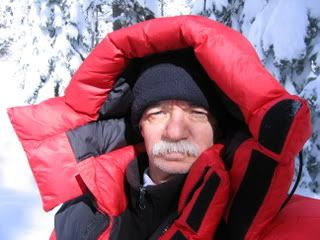A few more suggestions:
1. Someone has to be in charge, especially with newbies. By that, I mean one person who can call off the whole thing if need be and everyone must agree to that before going.
2. Weather check-you MUST do a weather check and get forecasts. Last winter a group similar in nature to yours-a bunch of people who met online-got caught in a very bad storm in the PNW and only were saved by a huge rescue effort-helicopters, snow machines and a 100 person rescue party.
Why did that happen? Because the leader failed to check the weather and they were unprepared-lack of skills and proper equipment. No one got killed or seriously hurt, but that was only because of the big search effort and a bit of luck with the weather. Two or three more days of the storm and most likely they would have been dead-the whole lot of them.
3. Gear Check-before the hike, not the day of. People need a checklist of what to bring and what not to bring. I would ban alcohol and drugs for the obvious reasons. People get careless and don't pay attention when drinking or getting high. Magnifies the chances of someone getting hurt.
You need to make sure that the newbies are properly equipped with at least the basics of the "Ten Essentials" plus rain gear, some kind of insulated clothes, adequate sleeping bag, adequate shelter, stoves, food, etc. They don't have to spend a lot, just bring sensible gear-no jeans or cotton hoodies. Substitute poly track suits and wool sweaters with some kind of jacket or poncho, even a cheap plastic one.
If needed, a trip to a discount store or Goodwill for cheap wool gear (probably easier to find up your way than fancy synthetics) for people on a budget. Get wool gloves and a beanie/watch cap too. You can find lots of things you may need at an Army Surplus store-look for CF (Canadian Forces) gear. I see it online all the time.
_________________________
Don't get me started, you know how I get.









 Previous Topic
Previous Topic Index
Index







